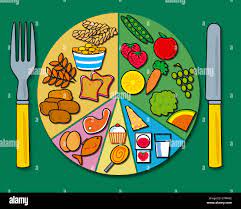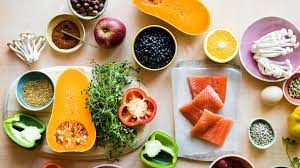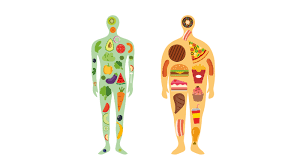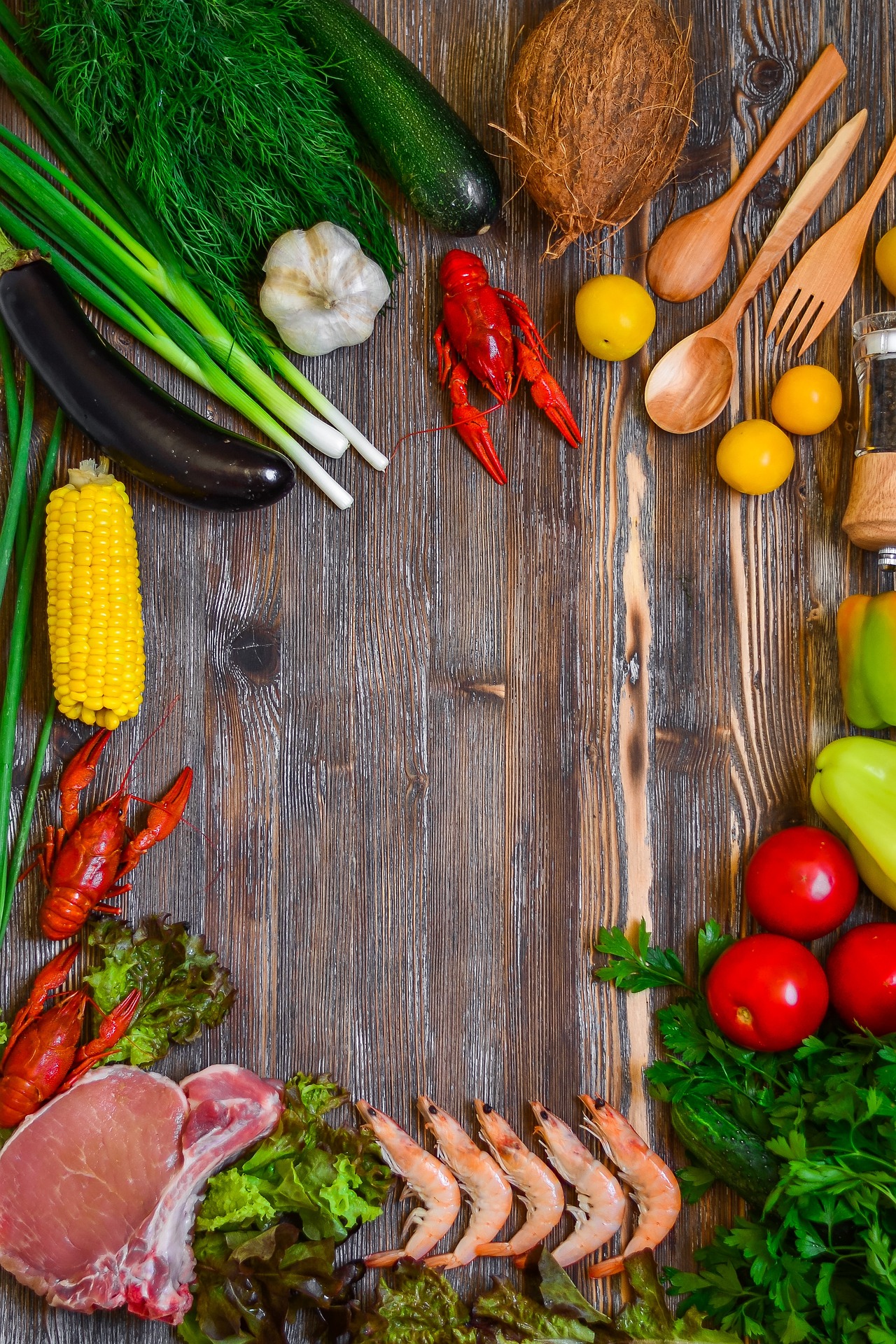Creating a healthier diet involves making mindful choices about what, when, and how you eat. Here's a comprehensive guide to transforming your diet for better health:
Balanced Nutrients:
Variety: Aim for a diverse diet including fruits, vegetables, whole grains, lean proteins, and healthy fats. This ensures you get a broad spectrum of nutrients.
Portion Control: Be mindful of portion sizes to prevent overeating. Use smaller plates, check serving sizes, and listen to your body's hunger cues.
Hydration: Drink plenty of water throughout the day. Water is essential for digestion, metabolism, and overall body function.

Focus on Whole Foods:
Fruits and Vegetables: These are rich in vitamins, minerals, and antioxidants. Aim for a colorful plate with a variety of produce.
Whole Grains: Opt for whole grains like brown rice, quinoa, oats, and whole wheat over refined grains for added fiber and nutrients.
Lean Proteins: Choose lean sources of protein such as poultry, fish, tofu, beans, and legumes to reduce saturated fat intake.

Reduce Unhealthy Choices:
Limit Sugars and Refined Carbs: Minimize intake of sugary drinks, candies, and foods high in refined carbohydrates. Instead, choose natural sweeteners and whole fruits.
Cut Back on Processed Foods: Processed foods often contain high levels of added sugars, unhealthy fats, and sodium. Opt for whole, unprocessed foods whenever possible.

Healthy Cooking Methods:
Grilling, Steaming, and Baking: These methods preserve nutrients without adding excessive fats.
Healthy Oils: Use healthier oils like olive oil or avocado oil for cooking and salads instead of saturated or trans fats.
Mindful Eating:
Slow Down: Take your time to enjoy meals. Chew slowly, savor the flavors, and pay attention to feelings of fullness.
Avoid Distractions:
Eating while distracted, such as watching TV or using devices, can lead to overeating. Focus on the meal to tune into your body's signals.
Plan and Prep:
Meal Planning:Plan your meals and snacks to avoid impulsive, unhealthy choices. Include a variety of nutrients in your planning.
Preparation:
Prep ingredients or meals in advance to make healthy eating more convenient during busy times.
Listen to Your Body:
Hunger and Fullness Cues:Recognize when you're hungry and when you're comfortably full. Don’t skip meals and eat when you're genuinely hungry.
Cravings: Understand cravings and find healthier alternatives. Sometimes cravings indicate a need for specific nutrients.
Seek Professional Guidance:
Consult a Nutritionist:For personalized guidance, consider consulting a nutritionist or dietitian who can create a tailored plan based on your needs and goals.
Remember, making dietary changes is a gradual process.
Small, sustainable changes over time tend to be more effective than drastic, short-term alterations. Prioritize long-term health and well-being by cultivating a balanced, nourishing diet that works for you.
Diet is a need for us and the most necessary component of our life.
A dietrichin fruits and vegetables has been scientifically proven that decreases the risk of several chronic diseases and lowers the toxic elements in our body. The use of fruitsandvegetablesindietalsofulfillsthebody'needs.Andthisadditionkeeps your body healthy and toxic-free.
However, changes that occur due to these diets sometimes seem very savage.ITIS goodtomakelittlechangesfirstinsteadoflargerones. Furthermore, a study comparing eating speeds shows that people who eat faster are much more likely to eat more than slow eaters.
Your appetite, the total you eat, and how you get full are all controlled by hormones and the capacity of your stomach. According to some research, slow eatingproves beneficialandhelpsto digestyourfoodfasterwhenyouchewyour food more. It also helps to lose weight and reduces the number of calories. The following steps will help you to stay healthy and active:
Useofwholegrain bread:
You can easily make your diet healthy and light by using whole-grain bread insteadofrefinedbread.Wholegrainbreadismuchmorebeneficialthanrefined ones and has other varieties which are tastier than refined ones. Whole grain bread has fiber, minerals, and vitamins B which are essential for the body. Just
makesuretocheckthelabelonthepackettoensurethatyourbreadismadeof whole grains or a mixture of both.
UseofGreekYogurt:
Greekyogurtisthickerthantheusualone.InGreek-styleyogurt,theexcess watery part of milk called whey is removed from yogurt. As a result, rich in fat, proteins, and thick yogurt is formed.
SinceGreekyogurthasstrained,itcontains morecarbsandlesslactoseandis twice rich as regular ones. Eating a good amount of protein helps reduce your food intake and manage your appetite.
Eggsin breakfast:
Eggsareincrediblyhealthy,richinproteins,andaremuchmore beneficial when eaten in the morning. They are highly rich in nutrients that sometimes people don't get enough as choline.
Eating eggs for breakfast feels you fuller,reduces the feelings of hunger, anddecreasesthenumberof calories.So,replacingyourbreakfastwitheggsmay result in your better health.
Increaseinproteinintake:
Protein is often considered the king of nutrients required for the human body. Onestudyshowedthatagoodintakeofproteinscandecrease thelevelof hunger and ghrelin and have full of macronutrients.
Ifwetalkaboutgoodsourcesofproteins,itincludes:
· Nuts
· Beans
· Eggs
· Meat
· Dairy products
· Peanutsorpeanutbutter
· WholeGrain Bread
Exercise Daily:
Exercise is an essential factor in our life. By taking regular exercise, you will feelactiveandmotivatedallday.Itis necessaryto dodailyexercise withahealthy diet. It will help you to improve your body condition.
Aproteinshakeisneededwithadailyworkoutto boostyourimmunity.It goes so well with our healthy diet. Sometimes a good diet is not enough to keep you healthy, but regular exercise or workout is needed.
UseofSaladwithyourdiet:
Salad is the lighter thing ina diet but is richin nutrients and proteins. As saladcontains lettuce,spinach,cabbage,tomatoes,andeggs,theseallare richin carbohydrates, proteins, vitamins, nutrients, and iron. So if you are not taking salad, then add it today.

AgoodintakeofWater:
Drinking enough water is essential for your health. Drink much water insteadofthe useofothersugarybeverages.Ithelpsto reducetoxicityinour bodies. Enough water also purifies our blood.
Accordingtoresearch, drinkingwaterbeforeamealreducesyourappetiteand maintains your body's calories. It also gains calories, which we burn in a day.
Cookmorelikelyathome:
Home foodisalwaysbetterthanoutsideones. Cookmore likelyathome will keep you healthier. Home food is always healthy and is better than restaurants.
Homefoodismuchmorelikelyrichinproteinsandnutrientsthan restaurant ones.
Therearemanyotherwaystomakeourdiethealthierandtokeepushealthy. Here wehave discussedafewof them.Inshort,a healthydietkeepsourbody healthy and has proven very useful for our daily work and routine. So, take healthy food and keeps yourself healthy, active and productive.


You must be logged in to post a comment.